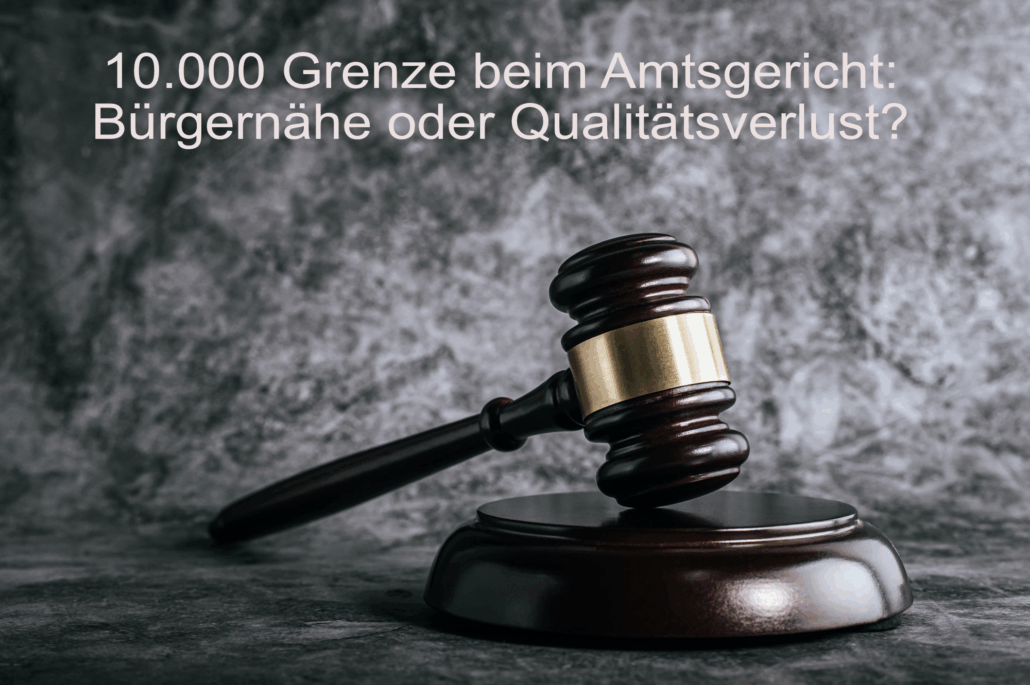LEGAL+ NEWS
The ZPO reform 2019 – “small” but noteworthy – is on the home straight. In the following, I provide an overview of the “highlights” resulting from the draft bill of the Federal Ministry of Justice:
Highlight 1: “Structuring” of the subject matter of the dispute by the court
According to the legislator, the courts should “structure” or “stratify” the matter in dispute as part of their litigation function. This possibility already exists, and a clarification in the law should now lead to the courts also making use of this possibility.
139 para. ZPO should read in future:
“The court can structure and stratify the matter in dispute.”
Highlight 2: Promoting the use of experts outside of formal hearings of evidence
As is already the case with regard to the “structuring” of the subject matter of the dispute, this is already possible today with regard to the future intention to consult experts. The amended wording is intended to make the courts more aware of this possibility in the legislative hope that more use will be made of it in future.
144 para. 1 sentence 1 ZPO should read in future:
“The court may order the taking of an inspection and the involvement of experts.”
This regulation – which, as I said, is not new in terms of its subject matter – must be viewed highly critically against the background of the principle of production of evidence, which is fundamental to civil proceedings:
This is because the principle of submission of evidence states that the parties alone must prepare the facts of the case for the court. The “involvement” of experts desired by the legislator results in the court determining the facts of the case. In addition, any expert consulted is no longer bound by the evidentiary questions posed by the parties. This means that the expert inevitably influences the process without this being controlled by the parties as the actual “masters” of the process.
Another very critical side effect of consulting experts in court is the incalculable costs incurred. It already seems questionable that this option allows the court itself to decide on the incurrence of costs that ultimately have to be borne by the parties as expenses of the court. Furthermore, the party who decides to file a lawsuit or defend against a lawsuit can no longer calculate the anticipated costs.
Highlight 3: Increased efficiency through various procedural simplifications – in particular: Simplification of the procedure for a court settlement
The adaptation of various regulations is intended to “increase efficiency”. In particular, a simplification with regard to the conclusion of court settlements should be mentioned:
Until now, the law has required that both parties accept a settlement proposed by the court by means of a written statement in order for a settlement recorded by the court to be effective.
In future, it should also be possible to declare agreement with a court settlement proposal on the record during the oral hearing.
278 para. 6 sentence 1 ZPO should read in future:
“A court settlement can also be concluded by the parties submitting a written settlement proposal to the court or by accepting a written settlement proposal from the court by means of a written statement or a statement for the record at the oral hearing before the court.”
Highlight 4: Permanent value limit of EUR 20,000 for appeals against denial of leave to appeal
In future, the value limit for lodging an appeal against denial of leave to appeal, which has been standardized several times for a limited period to date, is to be permanently set at EUR 20,000. Appeals that have been rejected as inadmissible will remain exempt.
544 para. 2 no. 1 ZPO should read in future:
“(2) An appeal against denial of leave to appeal shall only be admissible if
1. the value of the complaint to be asserted with the appeal exceeds twenty thousand euros or (…)”
The value limit is justified by the fact that this is the only way the BGH can “fulfill its tasks on a permanent basis”.
Highlight 5: “Automatic” withdrawal of the claim if the statement of claim in the contentious proceedings falls short of the dunning request
In practice, it is often the case that the application in the statement of claim falls short of the dunning request from the previous dunning procedure. In such cases, a corresponding withdrawal of the claim should be automatically assumed in future.
Highlight 6: Creation of further mandatory special chambers
Special chambers for proceedings in construction, medical liability, banking and insurance matters were already introduced in 2017 as part of the reform of construction contract law.
With the 2019 reform of the Code of Civil Procedure, special chambers are also to be introduced for proceedings in the areas of communications and information technology, inheritance law, insolvency law (including the right of avoidance) and press matters.
Highlight 7: ZPO reform 2019 contains a declaration of intent by the legislator regarding a reform of the chambers for commercial matters
Last but not least, the draft bill for the 2019 reform of the Code of Civil Procedure contains a declaration of intent to reform the chambers for commercial matters in order to make Germany more attractive as a place of justice. Due to its particular importance, this project is to be reserved for a separate legislative procedure.

Conclusion on the ZPO reform 2019
Intended “increases in efficiency”, e.g. by simplifying the possibility of reaching a court settlement, appear to be welcome insofar as they have an accelerating and simplifying effect in the interests of the parties.
Apart from that, however, the legislative motives that come to light in the draft bill must be viewed highly critically, as the legislator is primarily concerned with relieving the burden on the courts in many of the provisions – to the detriment of the parties, whom the courts are supposed to serve. In doing so, the legislator even accepts a considerable weakening of the basic principles of civil procedure by increasingly transferring to the courts the tasks that are actually assigned to the parties alone. Sooner or later, this will lead to an official investigation by the civil courts.
By the way, please also read my article on innovations in the ZPO in the area of expert witness law that have received little attention to date.

LATEST ARTICLES

Up to €10,000 before the local court: why it goes wrong
Up to €10,000 in the local court – a mistake with an announcement. The planned reform of the amount in dispute will shift masses of proceedings from the regional courts to the local courts. Sounds like a relief – but will have the opposite effect.

Contract law: Stuttgart 21 and the speech clause – a lesson in clear contract drafting
Sometimes a single sentence decides billions. This is exactly what happened with the Stuttgart 21 project. At the center of the legal dispute was a short contractual provision – the so-called “speech clause”.

Breach of an international jurisdiction agreement can result in liability for damages! – On the ruling of the BGH from 17.10.2019 (Ref. III ZR 42/19)
International agreements on jurisdiction, especially if they are to have exclusive validity, generally have the purpose of protecting the party benefiting from the agreement from the often very considerable costs of a legal dispute in a foreign country.
Unfortunately, however, it is not uncommon for the other contracting party to suddenly no longer want to know about the jurisdiction agreement in the event of a dispute. The background to such a dishonest approach is – obviously – not least the potential for blackmail associated with such an approach. This is because the party that finds itself – in breach of the jurisdiction agreement – exposed to a foreign lawsuit is regularly forced to take action abroad through lawyers in order to avoid legal disadvantages. This in turn is often very expensive, with the USA being the most prominent example.
CONTACT

+49 (40) 57199 74 80
+49 (170) 1203 74 0
Neuer Wall 61 D-20354 Hamburg
kontakt@legal-plus.eu
Benefit from my active network!
I look forward to our networking.
This post is also available in: DE

